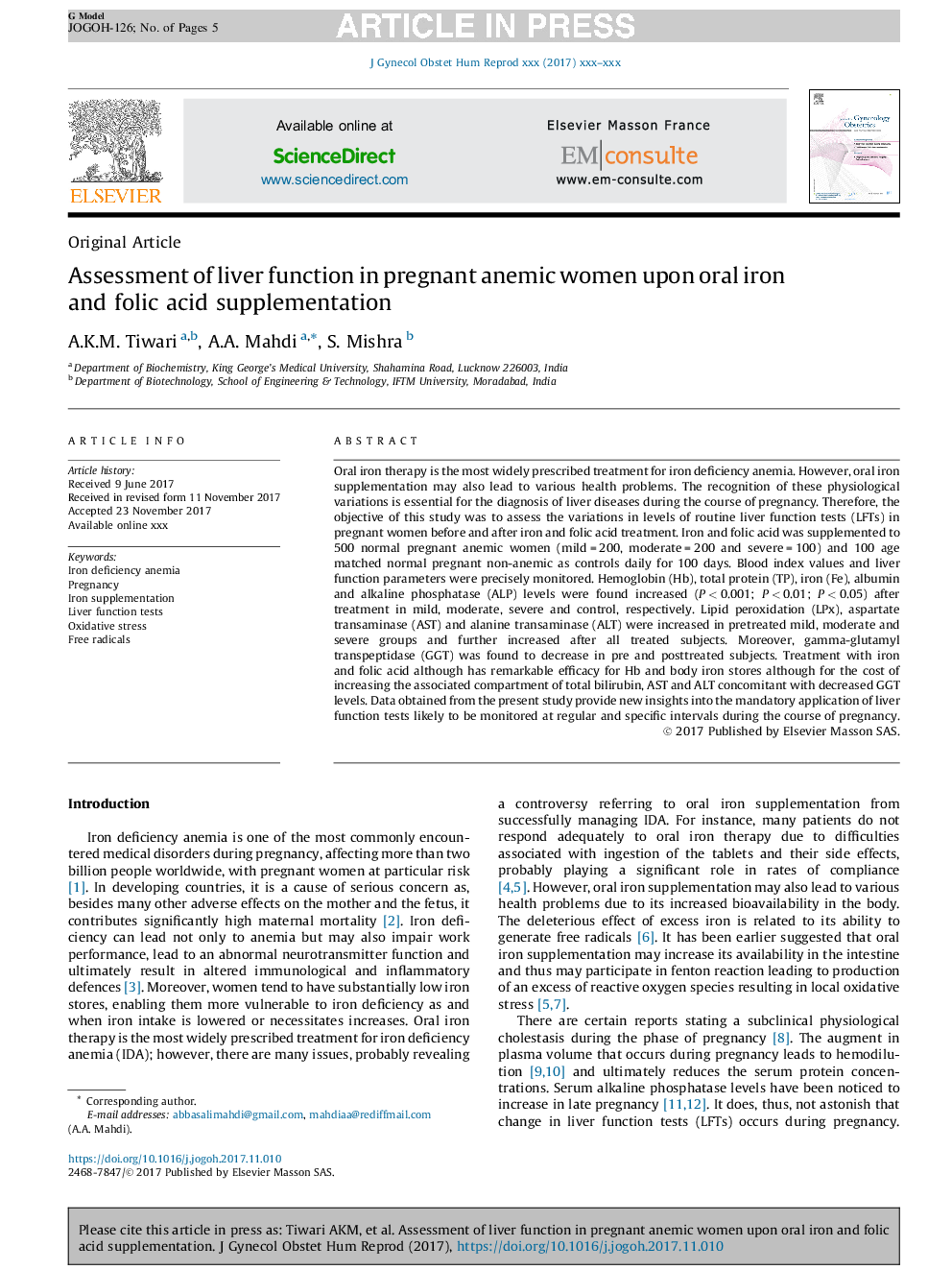| Article ID | Journal | Published Year | Pages | File Type |
|---|---|---|---|---|
| 8925214 | Journal of Gynecology Obstetrics and Human Reproduction | 2018 | 5 Pages |
Abstract
Oral iron therapy is the most widely prescribed treatment for iron deficiency anemia. However, oral iron supplementation may also lead to various health problems. The recognition of these physiological variations is essential for the diagnosis of liver diseases during the course of pregnancy. Therefore, the objective of this study was to assess the variations in levels of routine liver function tests (LFTs) in pregnant women before and after iron and folic acid treatment. Iron and folic acid was supplemented to 500 normal pregnant anemic women (mild = 200, moderate = 200 and severe = 100) and 100 age matched normal pregnant non-anemic as controls daily for 100 days. Blood index values and liver function parameters were precisely monitored. Hemoglobin (Hb), total protein (TP), iron (Fe), albumin and alkaline phosphatase (ALP) levels were found increased (P < 0.001; P < 0.01; P < 0.05) after treatment in mild, moderate, severe and control, respectively. Lipid peroxidation (LPx), aspartate transaminase (AST) and alanine transaminase (ALT) were increased in pretreated mild, moderate and severe groups and further increased after all treated subjects. Moreover, gamma-glutamyl transpeptidase (GGT) was found to decrease in pre and posttreated subjects. Treatment with iron and folic acid although has remarkable efficacy for Hb and body iron stores although for the cost of increasing the associated compartment of total bilirubin, AST and ALT concomitant with decreased GGT levels. Data obtained from the present study provide new insights into the mandatory application of liver function tests likely to be monitored at regular and specific intervals during the course of pregnancy.
Keywords
Related Topics
Health Sciences
Medicine and Dentistry
Endocrinology, Diabetes and Metabolism
Authors
A.K.M. Tiwari, A.A. Mahdi, S. Mishra,
